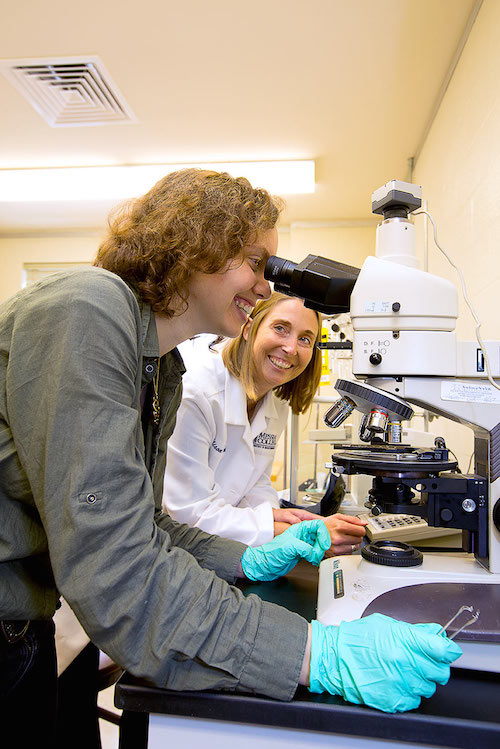Recognizable research
 Securing a prestigious faculty fellowship funded by the National Science Foundation, associate professor of chemistry Alison Noble makes a high-tech materials research facility accessible to Messiah students.
Securing a prestigious faculty fellowship funded by the National Science Foundation, associate professor of chemistry Alison Noble makes a high-tech materials research facility accessible to Messiah students. Professor Alison Noble is quick to note the benefits of a strong undergraduate research program.
“Students are at a distinct advantage if they have the chance to do high-level undergraduate research,” says Noble. “Graduate schools love basic research—it equips students to ask good questions, figure out how to answer them, how to troubleshoot, and it develops a lot of persistence and character.”Professor Alison Noble
That’s why Noble includes students in her own research. Noble is a materials chemist and three-time recipient of a National Science Foundation grant partnership at Penn State University’s Materials Research Institute—one of the best materials research facilities in the world.
There, Noble researches the formation of self-assembled monolayers of organic molecules on a zinc selenide surface. Specifically, she examines what the monolayers look like on the surface, and how they might be used to manipulate liquid crystals, which, for example, are the kind of molecules used in liquid crystal displays or LCDs as they are more commonly referred to.
Noble is thankful for the access to such advanced equipment for her own work and is excited to watch her students grow through the research process.
“Because Penn State is a top-level research facility, they have research equipment that small schools will never have. It enables our students to experience the small school—access to their professors, individualized attention, opportunities to do undergraduate research—but then they also get to do research with the same instrumentation that someone going to a large research school would have. They essentially get the best from both.” Professor Alison Noble
In simplified terms, Noble is exploring what’s on the surface. But more than that, she’s doing the foundational research that will lead to answers about the intricacies of physical systems that form the basis for many engineering and technological developments.
Written by Erin Bray ’10
Photography by Melissa Hess ‘05